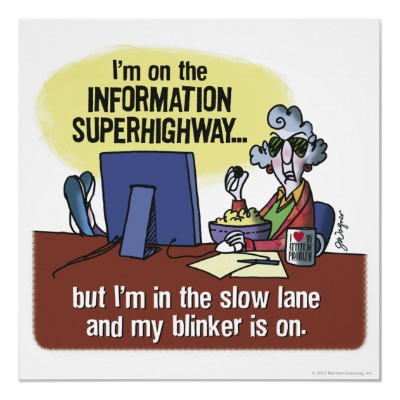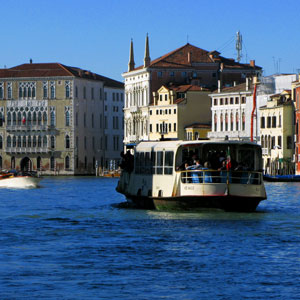Identifying Lou Bondi’s pitch on Tuesday’s Bondi+ was not too difficult. Franco Debono is doing a good enough job of undermining any valid points he may have with his behavioural shifting from the conspiracy theorist to the unabashedly ambitious politician. Franco seems to be unable to reconcile the values of his political mission with his unbridled hunger to slither up the greasy ladder of power as we know it. His behaviour plays into the hands of the spin-doctors of “taste” who are prepared to highlight his faux pas until they totally eclipse any reasonable matter he may rightly wish to bring onto the forefront of the national agenda.
Bondi desperately tried to pitch the Franco vs Gonzi angle repeatedly throughout the program – infamously culminating in Franco’s refusal to “parrot” the words that the anchorman (and Nationalist quasi-candidate endorser) had desperately tried to plant in his nervous interlocutor’s mouth all evening. One aspect of this angle pitched by Bondi was his continued insistence that Franco was way out of his rights when he threatened to bring down this government by withholding his confidence vote when the time comes.
In a little “f’hiex tifhem?” (a very typical Maltese challenge of “what’s your expertise in this”) moment Bondi referred to his university lecturing credentials (“I taught politics and not just sociology – ghandek zball madornali“) presumably inspired by Franco’s earlier stunt of using his school reports. For a second I was worried that the two would pull down their pants and compare the size of their private members (sic) but a little side jab about the “Santana booing incident” (as witnessed from the I’m A VIP Quasi-Minister section of the crowd) did the trick.
Back to the constitution.
For it is a constitutional issue we are talking about. Does a lone MP from the parliamentary group of the party in government have the right to threaten to bring down the government? In bipolar (sorry, bipartisan) Malta we tend to run off with the idea that the game is one of simple mathematics – you win an election, you have the autocratic right to govern (should I say Oligarchic Franco?). Sure, what with the pilfering and tweaking of the electoral laws we have perfected the English constitutional bipartisan system to perfection and driven more than one death blow to the possibility of proportional representation.
Last election’s carcades were hooting to the tune of a D’Hondt majority (see Bertoon illustration that we cooked up the next day). the D’Hondt system of voting combined with our “tweaked” constitutional provisions had led to a relative majority government – no party had obtained more than 50% of the votes but one party had 1,500 votes than the other. A constitutional clause had come into play and the way it worked was –
a) if only two parties are elected to parliament,b) if none of the two parties obtain more than 50% of the votes,then the party with the largest number of votes (a relative majority) will be entitled to an adjustment of seats in order to be able to enjoy a majority of seats in parliament. That’s all found in article 51(1)(ii) of the Constitution of Malta.
Interestingly (and useful for later discussion) the provisos to this article are a rare instance in which reference is made directly to “political parties”. It’s interesting because the Constitutional structure relating to representation and government (and therefore to the management of the basic power entrusted by “the people”) centres around individual “representatives” as elected to parliament by universal suffrage. The constitutional link between elector and elected is direct – there was no original intention for the intermediaries we now call “political parties”*.
This important distinction between political parties and members can be clearly seen from the Constitutional article on the appointment of the Prime Minister – article 80:
Wherever there shall be occasion for the appointment of a Prime Minister, the President shall appoint as Prime Minister the member of the House of Representatives who, in his judgment , is best able to command the support of a majority of the members of that House (…)
Again. No parties. The President takes one good look at the House of Representatives and determines whether any member among them can count on “the support of a majority of the members” – that’s what is in play whenever a “confidence vote” comes into play. It’s an opportunity to put to test whether the PM still enjoys that majority support. In the current context it’s what Joseph Muscat would like to table (a motion of confidence) and where Franco’s threat might come into play (by not voting for the PM and thus undermining his ability to “command the support of a majority”.
Now comes the hard part for hardcore nationalist voters to digest. Franco Debono is the latest symptom of the Coalition of the Diverse called GonziPN that oh-so-miraculously snatched victory from the jaws of defeat last election. The rainbow coalition within GonziPN was possible because of a lack of scrutiny, a loose combination of values (if any) and mainly because any candidate who could steal valuable votes that could lead to the relative majority victory (and therefore to the automatic majority in parliament) was backed to the hilt. Remember the JPO saga? Remember the spin masters backing what was very evidently a loose gun to the hilt – basta nitilghu?
So when the members of parliament finally took their place in the house of representatives Lawrence Gonzi could assume that he commands the support of the majority of members. He assumed it because any leader of a political party in Malta who has just won the election assumes that his party members will back him to govern. Easy. Alfred Sant assumed that in 1996. Lawrence Gonzi had no reason not to in 2008. The mechanism is not foolproof however. At the basis of the whole system remains the basic currency of power transfer – the representatives themselves. As Franco has reminded us more than once the “support of the representatives” cannot be taken for granted.
The mechanism of “support” or confidence is a check on the power of government. Viewed from outside the convoluted scenario that Franco has created around himself (with the help of the bloodsucking media) you will understand that the right of a member to withdraw his support is an important check in our democracy. It is just as important (if not more) as the existence of an opposition.
Even though our political parties operate on the assumption that “loyalty” is universally automatic they have now been exposed to the democratic truth that it is not. The failure is not of the system but of the arrogant assumption that the bipartisan mechanisms that the parties have written into the constitution will guarantee their permanent alternation. Franco’s methods might be obtuse and distasteful especially when they betray blatant and crude ambition but on a political level the renegade politician who disagrees with the party line was not only predictable but threatens to become a constant in the future.
The more political parties ignore the need to be coherent politically and the more they just throw anything at the electorate in the hope that something bites the more they can expect of “Franco-like” personalities. The failure to whip Franco into the party line is not a democratic failure or a constitutional flaw but a failure of the political party to operate as an effective vehicle of democratic representation.
D’hondt worry? Frankly it was only a matter of time. It’s actually a miracle it took this long for the shit to hit the fan.
* In a recent House of Commons document (Speaker’s Conference on Parliamentary Representation) political parties were defined as “the mechanism by which people of any background can be actively involved in the tasks of shaping policy and deciding how society should be governed. While they are not perfect organisations they are essential for the effective functioning of our democracy. Without the support of political parties it would be difficult for individual Members of Parliament, as legislators and/or as members of the Executive, to organise themselves effectively for the task of promoting the national interest—including by challenge to the Government, where that is necessary and appropriate—and ensuring that proposed new laws are proportionate, effective and accurately drafted.”








